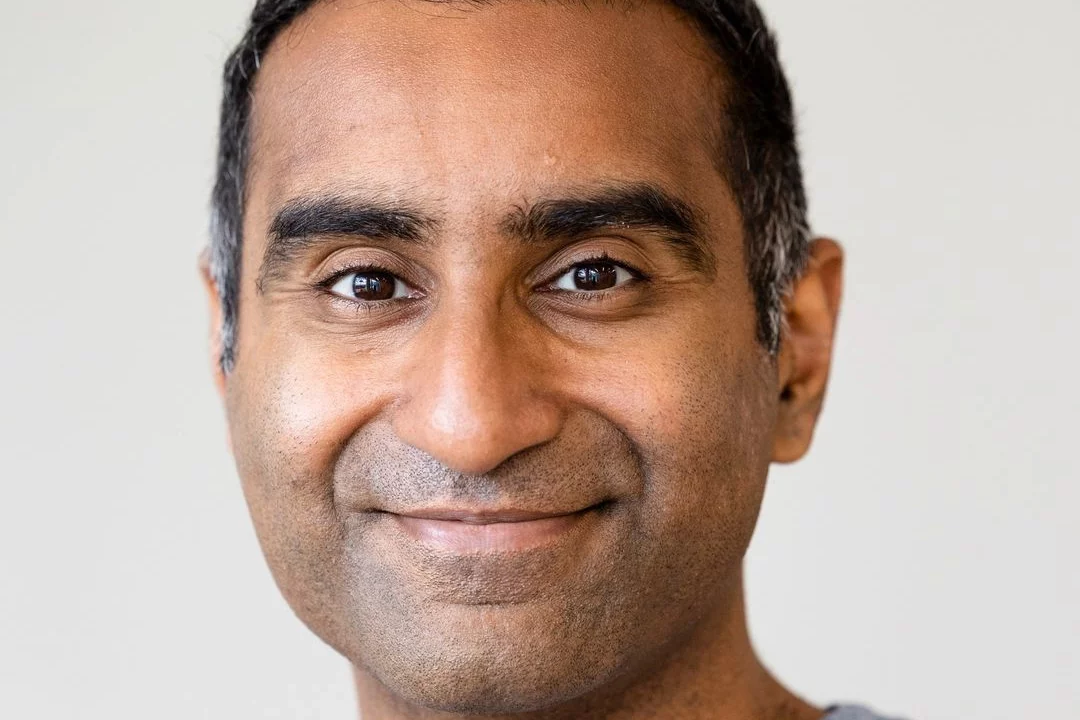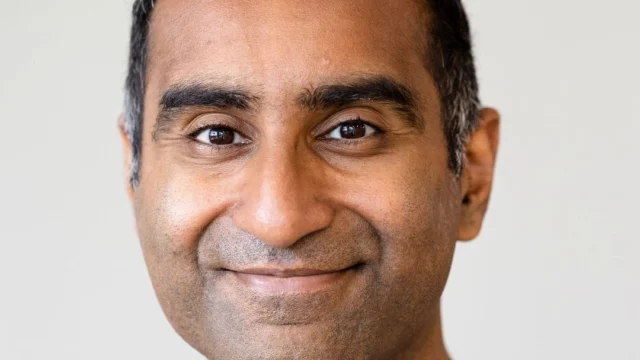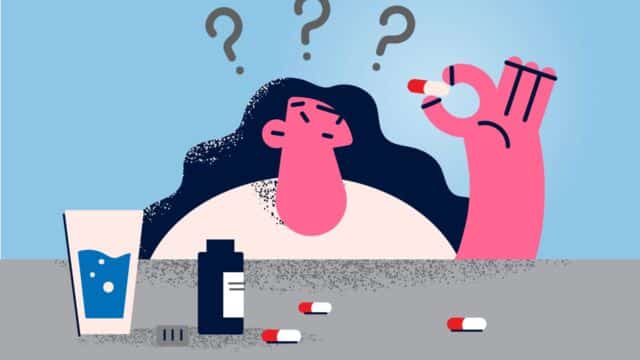
Every cure for every community: a new development model that lets patients fund the most promising rare disease treatments
Alok Tayi’s daughter was born very sick. She was diagnosed with two rare conditions, a neurological disease called Tethered Cord Syndrome, and a form of pulmonary failure. This meant multiple trips to the emergency room, tube feeding and even a neurosurgery before she was one year old. Despite the biology of her diseases being well understood, and being under the excellent care of Boston Children’s Hospital, there were no dedicated treatments to help her. She spent the first two months of her life suffering in hospital.
Alok is a scientist with a wealth of biotech expertise. Before his daughter’s birth, he was living in Boston building software companies in the life sciences space. Alok’s perspective on the situation he found himself in was unique – he worked amongst companies developing therapies for many different diseases, but was also the parent of a child whose disease had no treatment. This led to him becoming fixated on one question:
“If we understand these diseases, why don’t we have treatments or any in development?”
With deep ties to the biotech industry, he posed this question to his network of founders, investors and drug developers, and found a key observation: “My ultimate insight was that the challenge is not finding a cure, but rather funding it.”
In pursuit of a solution, Alok founded a company called Vibe Bio that enables funding for high potential drug programmes, especially in rare diseases. Through a community of patients, scientists, and partners, Vibe Bio’s goal is to identify the most promising candidates for a disease and ensure they receive enough funding to surpass their inflection points.
“Having a kid who is sick is among the most physically, emotionally, and spiritually difficult experiences someone can go through. For some, that grief morphs into determination and they become unstoppable in finding a cure. I think there is such beauty and inspiration in that determination, especially when channelled towards great science.”
Inflection points and unlikely partners
According to Alok, financial bottlenecks are created as a biotech approaches an inflection point.
Investments are often allocated at a crucial stage in a biotech’s development, usually when data is obtained, and is how the company moves to its next stage of growth.
The problem is that investors want to see data that can demonstrate potential success before committing funds, but biotech companies need funds to generate that very data. This creates a “chicken and egg” scenario that means science showing incredible promise in the preclinical stage may never make it to human studies. For rare disease patients who battle against a scarcity of research and extremely limited treatment options, this preclinical work could inform a drug that might save their lives.
In today’s challenging macroeconomic environment, rare disease drug programmes also face the likelihood of being deprioritised – they are extremely expensive, higher risk, and in diseases that are not as well understood, making them less attractive to investors. This makes it all the more important for different development models to enter the ecosystem in support of the few companies prepared to take a risk for rare disease patients.
The Vibe model was influenced by the many patient communities and charities who have successfully brought new therapies to market outside of traditional development parameters. Vibe believes that drug development is a team sport, and that every patient with a life altering disease, no matter how rare it is, should feel part of a community with the power to pursue a cure.
“Some of the most canonical medicines discovered in recent memory, like treatments for cystic fibrosis, the vaccine for polio, and drugs for hypertension, were all funded by communities of patients and scientists through charities. This community-driven model was powered by donations from a distributed group of people, and their innovations have led to transformative medicines and companies like United Therapeutics, Amicus, and Vertex Pharmaceuticals. Vibe wants to scale this model using a combination of software and expertise.”
The belief that a community can develop a new drug is a key fixture of the decentralised science or ‘DeSci’ movement, that recognises pharmaceutical companies aren’t the only entity important to therapeutic discovery, and that there are many playbooks to bringing a new therapy to patients. Sometimes, for someone with a rare disease, the only way to find a drug fast enough to save their life is to develop it themselves. This was the case for Milasen, a custom therapy designed for a single patient with Batten disease – in 10 months.
According to Alok, the tide is turning. He believes the greatest impact can be had when you pair scientific experts who know how to develop drugs and engage the FDA with patients and caregivers. “Pioneers like Martine Rothblatt at United Therapeutics and John Crowley, now at Amicus, came from adjacent domains and partnered up with drug developers to be successful” he says.
An AngelList for biotech: How Vibe Bio works
Like a matchmaker, Vibe uses software to connect investors to biotech companies that align with their appetite for risk, along with the scientific insight into the potential of the drug.
“Our model is to use a combination of software and expertise to help a decentralised network of investors, which can be angel investors or also patient communities, fund the therapeutic programmes most relevant to them.”
Vibe more frequently supports drug development where a community of patients and a promising therapy have been identified, but it can step in at any stage of the development journey. Alok and his team will help by providing capital, counsel and expertise so a company can move unconstrained to its next inflection point.
Vibe’s edge is its software tools and the access it has to both public and private historical drug data to inform the risk and reward of new programmes. Through its partnerships across the biotech ecosystem, Vibe has access to datasets that can help benchmark a drug’s performance, and an expert network of scientists, patients and partners who know what to look for, and what is needed, in a new candidate for an overlooked disease.
Great people, great programmes and great potential
Vibe will funnel its resources towards the most promising candidates through a selection process that assesses the quality of the science, the team behind it and its overall prospect. Alok calls this criteria ‘great people, great programmes and great potential’, where Vibe’s team of experts take a deep dive into a candidate’s MOA and its preclinical data. They then use technology and their collective expertise to make a decision on whether or not to invest, and which investors would be a good match for the programme.
Connecting the right investors to the right candidates is an important part of the Vibe model because of how challenging it is for investors to have in-house expertise in every disease. This is especially true for rare diseases that are complex and not as well understood. Angel investors, family offices and hedge funds aren’t domain experts, even though they might be interested in investing in new medicines.
What a biotech could expect from Vibe Bio as a partner
Vibe actively funds several high potential drugs to approach their next stage of development, after being vetted and given the seal of approval by a domain expert.
“For the companies we decide to fund, we support them in two key ways. First, we help them raise money faster by introducing them to our investor partners. We share our scientific diligence work with those funds, under NDA, to help expedite their decision-making. Second, we assemble a regular scientific steering meeting so that our drug development team can provide feedback and help forecast future challenges.”
By giving a broader pool of people the power and autonomy to fund the most promising therapies, biotech companies developing medicines for overlooked diseases are supported through critical inflection points instead of being forced to prioritise a lead programme in a better-known disease.
At the same time Vibe Bio was launched in June 2022, the company partnered with Chelsea’s Hope, a charity and advocacy group for patients with Lafora disease. Lafora disease is an incredibly severe form of epilepsy that strikes during teenage years, and leads to rapid cognitive deterioration in previously healthy, happy children. Patients lose the ability to perform their daily activities by their twenties, and may only have ten years to survive.
Fighting the Rare is a short film that offers a glimpse into research on Lafora disease through the testimonies of researchers, patients and their relatives, and features the stories of advocates like Niki Markou from Chelsea’s Hope, whose daughter was diagnosed with Lafora disease. You can watch it below – but make sure you have tissues to hand.
With an active community, almost a century of research behind the disease and a well understood root cause, Alok saw an opportunity to potentially address a huge unmet need by partnering with Chelsea’s Hope. The fact Lafora disease is fatal means there is an urgency amongst all members of the community to work together to find a treatment, and as the world witnessed with Milasen, urgency can deliver life-saving innovation.
A joint company, New Hope Therapeutics, was created with Vibe’s support to pursue and fund a treatment for Lafora disease. Currently, Alok is reviewing candidate medicines with the Chelsea’s Hope team.
“We’ve learned that the future of disease is rare. There is a major tailwind in biotech where historically monolithic diseases, like cancer, IBD and autism, are actually not one monolithic disease, but are highly heterogeneous. Each is composed of numerous diseases with a common manifestation, and this has required the industry to be far more precise, and to think about a new development philosophy.”
Vibe’s philosophy is certainly new, but actually puts patients and scientists, the most important stakeholders in the development journey, front and centre. Perhaps this is exactly how it should be.
Alok’s advice for companies working on rare diseases is to “be prepared for the emotional ups and downs, do it for the right reasons of medicines to patients over money, and spend a lot of time educating.”
Vibe is eager to connect with patients, families, advocates and any other stakeholders who share its drive to bring new therapies to patients with rare diseases. Vibe welcomes funding applications from biotech companies developing novel therapies, and is always seeking input in its thriving Discord community from patients and investors. You can join that here.
The Impact Review Newsletter
Get highlights of the most important news delivered to your email inbox



